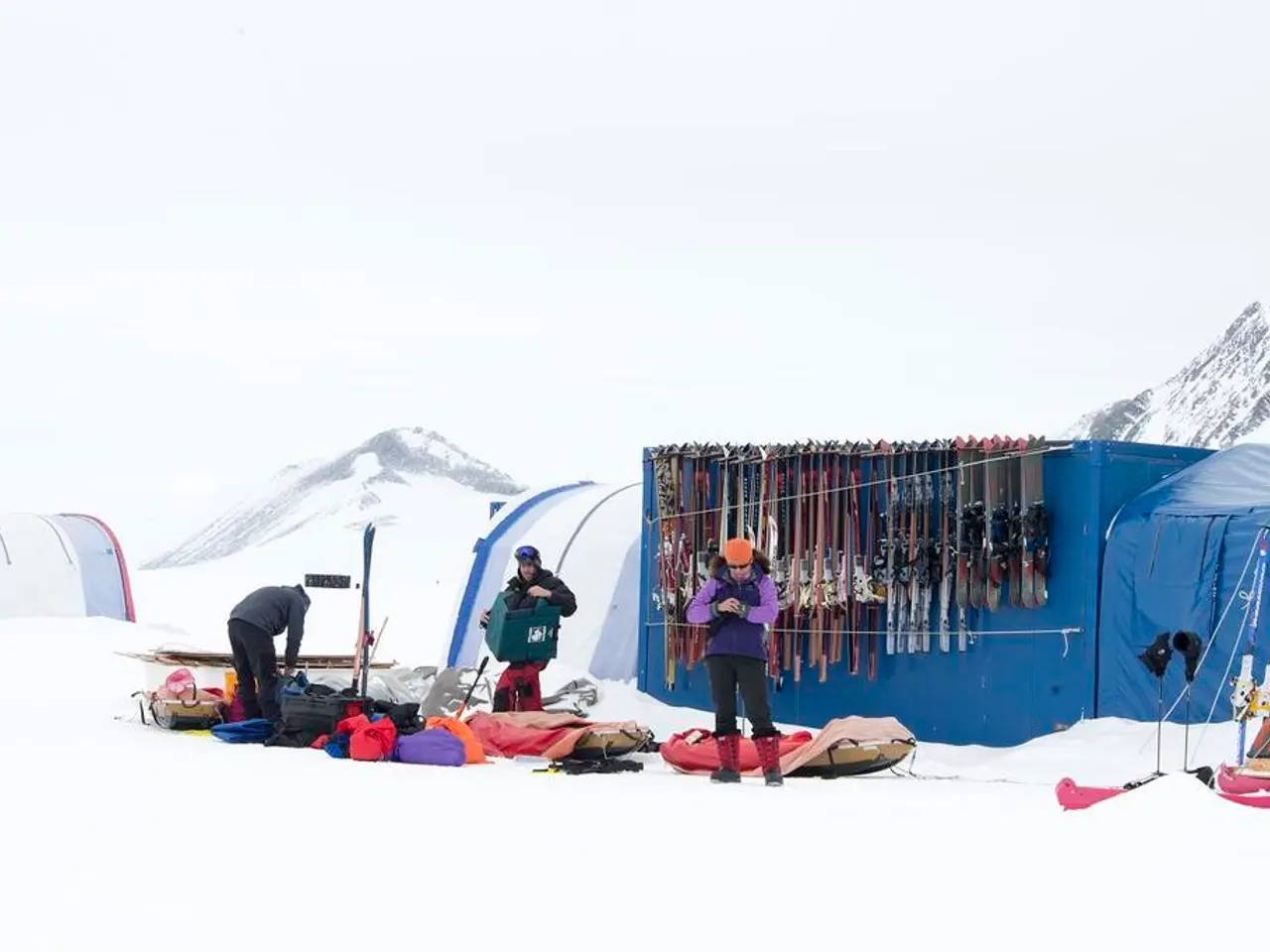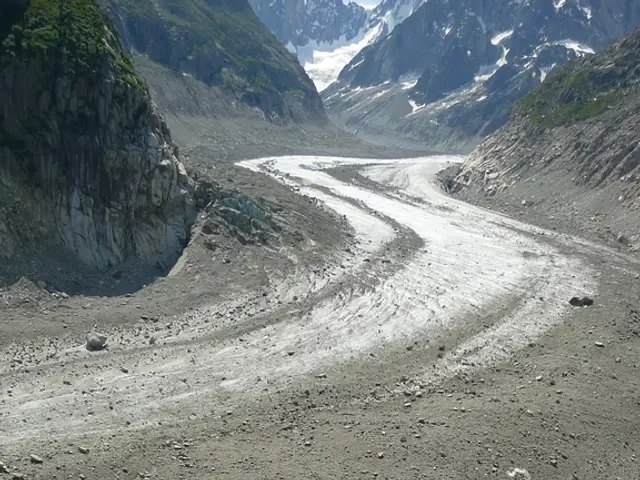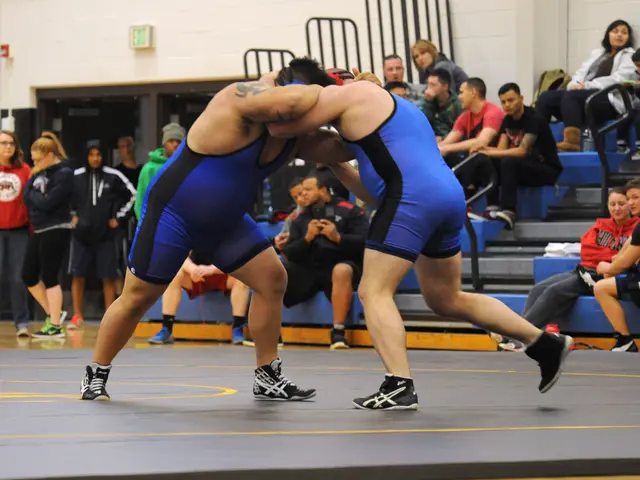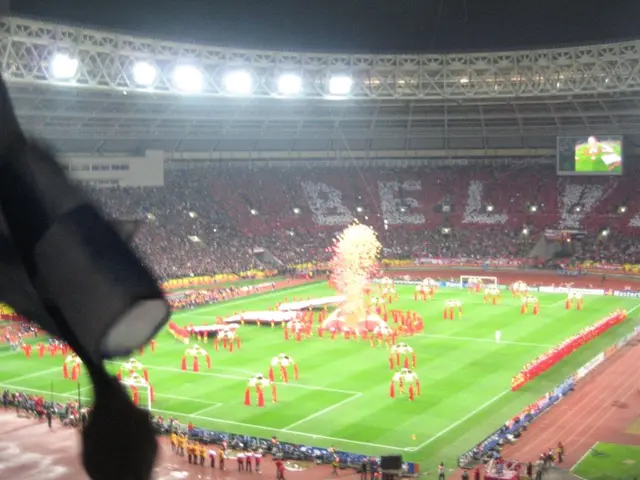Early Season Ski Accident Triggers Alert for Safety Precautions
In the chilling aftermath of a tragic skiing accident on Mt Ruapehu in June 2022, the coroner's inquiry has underscored the importance of extra caution, thorough planning, and avoiding solo skiing on unpatrolled or early-season terrain in backcountry areas.
The accident claimed the life of Ian Howat, a seasoned skier and mountaineer from Wellington, who was a long-time member of the Tararua Tramping Club. On the fateful day of June 24, Ian and a fellow club member set out for Skyline Ridge above the Pinnacles, with Ian planning to ski his way down. However, when he failed to arrive at the Tararua Tramping Club Lodge, a search and rescue operation was activated at 5pm.
The inquiry concluded that Howat's fatal fall was likely a result of icy conditions and difficult terrain that combined to cause a loss of control and traumatic injury upon hitting a rock. This unfortunate incident highlights the need for heightened vigilance and safety measures in early winter backcountry skiing situations.
The New Zealand Mountain Safety Council (MSC) emphasizes that early winter conditions can be especially dangerous, with icy snow and firm surfaces that increase the chance of falls and injury. To mitigate these risks, MSC recommends that backcountry skiers:
- Recognize the dangers of early winter conditions and plan routes carefully, considering the presence of rocks and other hazards that may be exposed due to snow firmness or limited coverage.
- Avoid skiing alone, especially in challenging terrain, as this increases the risk of accidents.
- Understand that unpatrolled ski fields carry additional risks, especially when slopes are not officially opened for the season.
- Engage with local mountain safety organizations and consider their advice when planning early winter backcountry trips.
- Maintain a critical eye on environmental factors, like surface conditions, weather, and group dynamics, no matter how familiar the area is.
In addition, MSC highlights psychological factors like commitment, familiarity, and 'get-home-itis' that could have influenced Howat's decisions. Skiing together could have provided more opportunities for shared decision-making and earlier awareness of an accident.
The MSC Chief Executive is urging backcountry users to plan trips with extra care, especially in the North Island, where similar early season conditions currently exist in many alpine areas. Backcountry users need to have appropriate skills and experience, the right gear, including a helmet, and in North Island mountains, crampons and an ice axe are often also needed.
Coroner Katharine Greig endorsed MSC's recommendations to prevent deaths in similar circumstances, including checking the NZ Avalanche Advisory and having a back-up plan. She also emphasized the importance of skill, experience, and appropriate equipment to mitigate the risk of an uncontrollable slide. Ian carrying a large backpack could have affected his balance in challenging terrain.
In unpatrolled ski areas, the minimum party size should be two skiers, according to the Tararua Tramping Club's recommendation. The pair separated at Skyline Ridge, with Ian skiing down and his companion going on foot to the bottom of the ridge.
As we move into the early winter months, it is crucial for backcountry skiers to heed these safety recommendations and prioritize their safety and the safety of their companions. Let us remember Ian Howat's tragic accident as a call to action for increased vigilance and safer practices in the backcountry.
[1] New Zealand Mountain Safety Council. (n.d.). Backcountry Skiing Safety. Retrieved from https://mountainsafety.org.nz/activities/skiing-snowboarding/backcountry-skiing-safety/
[3] New Zealand Mountain Safety Council. (2022, August 10). Mt Ruapehu skiing death highlights need for extra care in early season. Retrieved from https://mountainsafety.org.nz/news/mt-ruapehu-skiing-death-highlights-need-for-extra-care-in-early-season/
- The tragic skiing accident on Mt Ruapehu in June 2022, which left Ian Howat, a member of the Tararua Tramping Club, dead, underscores the importance of safety measures, particularly in early winter backcountry skiing situations, and the need for outdoor-living enthusiasts to recognize the dangers of icy conditions, plan routes carefully, and avoid solo skiing.
- In a bid to prevent mishaps like the one that occurred on Mt Ruapehu, the New Zealand Mountain Safety Council recommends that backcountry skiers engage with local mountain safety organizations, maintain a critical eye on environmental factors, avoid skiing alone, especially in challenging terrain, and check the NZ Avalanche Advisory.
- In the light of the accident on Mt Ruapehu, it is essential for home-and-garden enthusiasts, who also enjoy outdoor-living activities like skiing, to heed the safety recommendations from organizations like the New Zealand Mountain Safety Council, prioritize their safety and that of their companions, and always keep general-news updates about conditions in alpine areas in mind before embarking on backcountry skiing trips.








